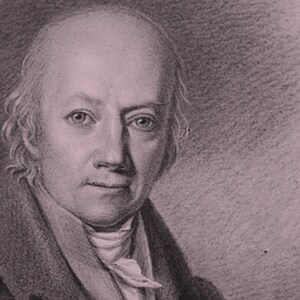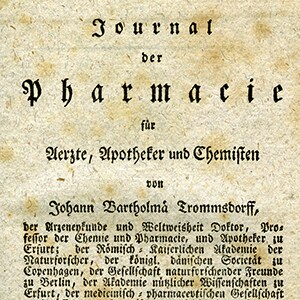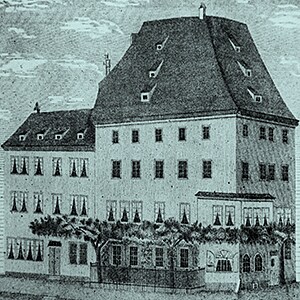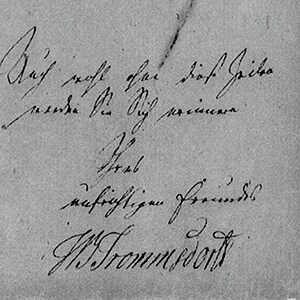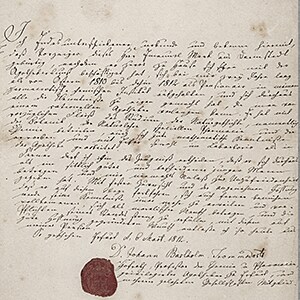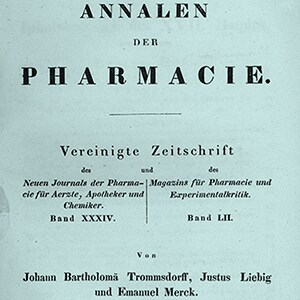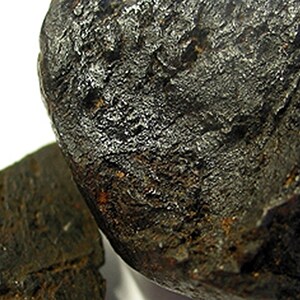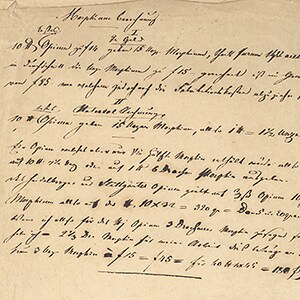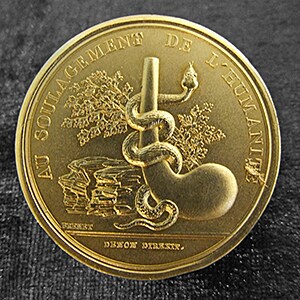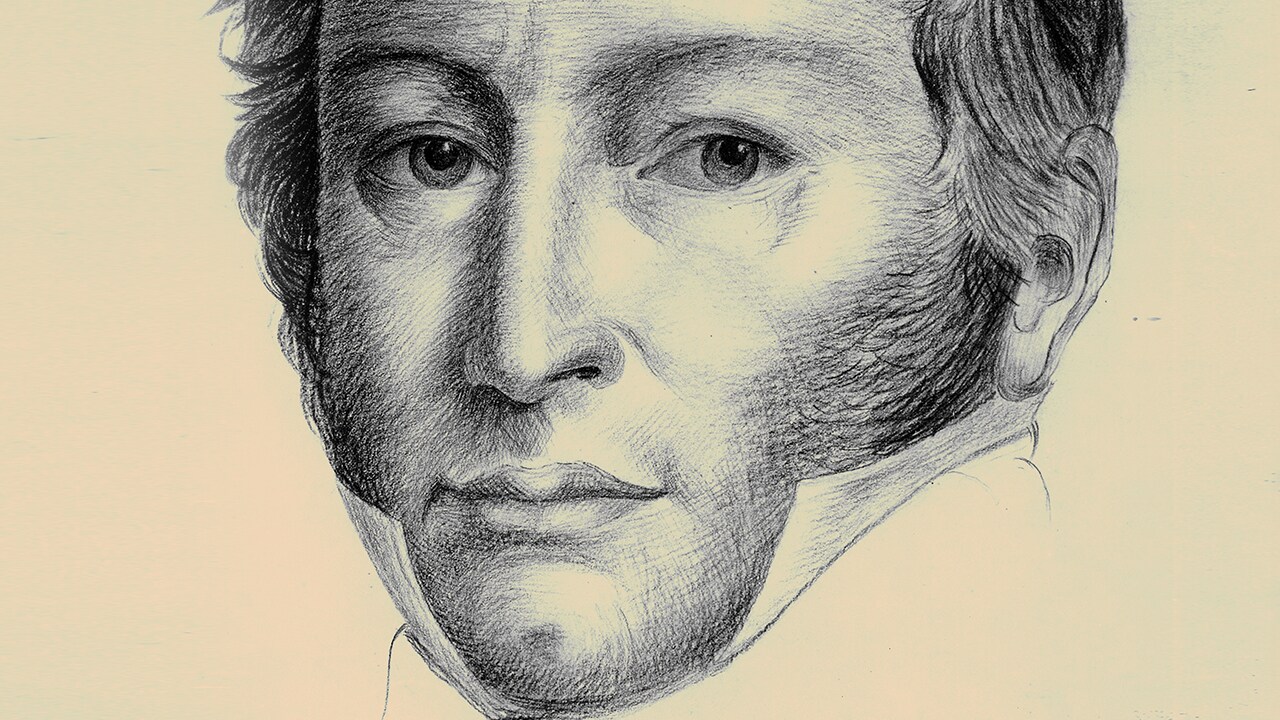
textblock default title
»[Everything possible must be done to] elevate pharmacy from an empirical manual craft to a scientific art…«
Johann Bartholomäus Trommsdorff, 1810
Emanuel Merck comes of age in a period of major transition and change. But it is not only his family that imbues him with qualities that are otherwise still rare in the strongly traditional, less-than-innovative pharmacy profession of that time. His education at the Trommsdorff Institute in Erfurt starting in 1810 likewise plays akey role in shaping Emanuel, nurturing his longing for new discoveries and offering opportunities to explore them.
Emanuel’s future achievements will be built upon the foundation laid by his teacher, Johann Bartholomäus Trommsdorff. Housed in the »Schwan-Apotheke« in Erfurt, the »chemical-physical and pharmaceutical training institute for young men« founded by Trommsdorff in 1795 is the most important private pharmaceutical institute of its time.
In urging that »everything possible must be done to elevate the status of pharmacy from an empirical manual trade to a scientific art«, Trommsdorff, both a pharmacist and a chemist, is setting an ambitious goal. He is the driving force behind the efforts to reform the field. He therefore teaches not only the fundamentals of formulation utilized in the dispensary and laboratory, but also lectures extensively on the respective theoretical foundations. Instructing students in how to perform scientific research is of utmost importance to him, an approach that positions Emanuel Merck to publish his study on the »Chemical analysis of common fumitory« in 1811.
Trommsdorff is astoundingly devoted to hard work; besides running his institute and pharmacy, he himself undertakes scientific research, lectures at the University of Erfurt and, in publishing the highly respected »Journal of Pharmacy for Physicians and Pharmacists«, lays the cornerstone for peer-reviewed academic pharmaceutical literature. In addition to all this, he writes teaching manuals and handbooks, founds a factory and is devoted to charitable causes. Under his guidance, Emanuel Merck thus obtains not only the best education of his era, but also insight into many of the latest issues within the pharmacy profession. Throughout their lives, student and teacher will remain closely connected through friendship. After taking over his father’s pharmacy, Emanuel sends a letter to Erfurt stating that the pharmacy »is now equipped to the point« that he can »devote more attention to chemistry«. He is referring to the plant-based chemistry (specifically alkaloid chemistry) for which Trommsdorff’s lessons had inspired a fascination.
In 1830, Emanuel Merck receives a gold medal in Paris, his first official recognition for alkaloid research following the publication of his article »Detailed chemical knowledge of a number of prime vegetable bases« in Trommsdorff’s »New Journal of Pharmacy«.
The »chemical-physical and pharmaceutical training institute for young men« operated by Johann Bartholomäus Trommsdorff inside in the »Schwan-Apotheke« in Erfurt is where Emanuel Merck is trained. Trommsdorff is not only a teacher, but also a pharmacist, factory founder, scientist, and publisher.
Excerpt from Trommsdorff’s letter of reference for Emanuel Merck, 1812: »He industriously pursued studies in natural history, specifically botany, natural philosophy, ›special pharmacy‹, and chemistry, while also developing a solid foundation in mathematics. Moreover, he worked diligently in both the laboratory and the pharmacy.«
In researching alkaloids, Emanuel Merck is particularly interested in the constituents of opium. Word spreads quickly about the quality of his products. In 1830,the Société de Pharmacie in Paris, at that time the leader in alkaloid research, awards him a gold medal for his research work.

